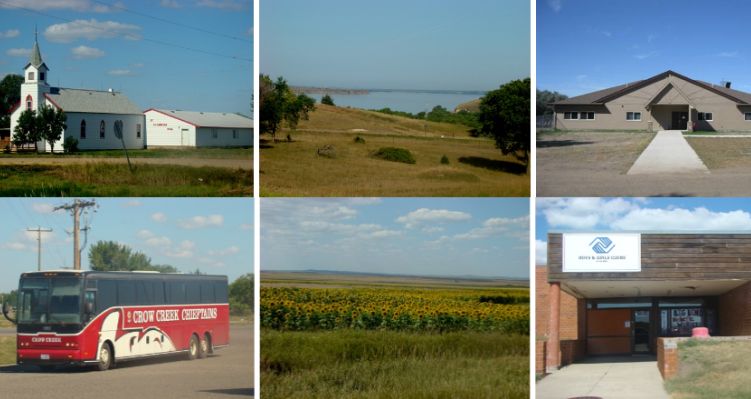In South Dakota, the Crow Creek Sioux Tribe and the Rosebud Sioux Tribe have signed short-term extensions to their Class III gaming compacts despite an ongoing dispute concerning the number of slots non-aboriginal casinos are permitted to operate along with their opposition to the state’s support for controversial oil pipeline projects.
Based around the small town of Fort Thompson, the Crow Creek Sioux Tribe operates the Lode Star Casino And Hotel and has agreed an extension until June 28 while the Rosebud Sioux Tribe, which runs the Rosebud Casino only a few yards from South Dakota’s border with Nebraska, has prolonged its current compact to June 31.
The pair have continually protested that the state’s non-aboriginal casinos, which are centered around the city of Deadwood and include venues such as the Mineral Palace Hotel And Gaming, the Tin Lizzie Gaming Resort and the Deadwood Mountain Grand, are collectively permitted to offer up to 3,200 slots while their facilities have so far each been limited to only 250 machines.
The deal recently signed by the Crow Creek Sioux Tribe, which in October threatened to cut off all contact with the state following Pierre’s support for the policing of protests against the Dakota Access Pipeline, represents the tribe’s fifth such extension in the last three years while the Rosebud Sioux Tribe has been inking short-term agreements since 2012.
“South Dakota, now, has knowingly entered into that and condones the pepper spray, the shooting down of a drone, the felony charges of our young men and women, the actions of using batons and using military tactics on our people, which, who by the way, are not armed,” Brandon Sazue, Tribal Council Chairman for the Crow Creek Sioux Tribe, told South Dakota Public Broadcasting in October. “So, we are paying for them to be up there, in other words, and we can’t be a part of that.”
Bolstered by the unity it found while opposing the Dakota Access Pipeline, the Rosebud Sioux Tribe has previously explained that it intends to provide space to resist construction of the subsequent Keystone XL oil pipeline project and recently took part in protects against the planned $8 billion scheme in Washington, DC.
“We want to bring our voice out, you know, for everybody to hear us,” Alex Romero-Frederick from the Rosebud Sioux Tribe told local television broadcaster KVRR-TV. “We thought a national platform would bring more attention to what’s going on.”



